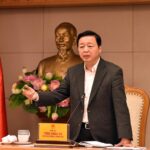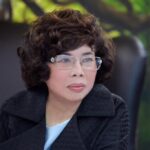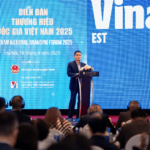
Prof. Dr. Nguyen Thuong Lang |
The recently issued Resolution No. 68-NQ/TW dated May 4, 2025, by the Politburo on private sector development has outlined eight important tasks and solutions, including “strengthening the connection between private enterprises, private enterprises with state-owned enterprises and FDI enterprises.”
As remarked by Prof. Dr. Nguyen Thuong Lang, a senior lecturer at the Institute of Trade and International Economics, National Economics University, state-owned enterprises (SOEs) are born with certain specificities, directly serving the nation’s crucial tasks during pivotal stages.
Embarking on a New Mission
In this era of national advancement, SOEs will need to shoulder the missions of the times. At a working session themed “State-owned Enterprises Pioneer in Digital Transformation and Growth Promotion” held on April 15, 2025, Prime Minister Pham Minh Chinh instructed SOEs to develop, grow, and become stronger and more mature by promoting science and technology, innovation, digital transformation, green transition, and labor productivity enhancement. They should strive for their own development while contributing to the rapid and sustainable growth of the country and the realization of the two centenary goals (aspiring to become a developing country with modern industry and upper-middle income by 2030, the 100th anniversary of the Communist Party of Vietnam’s founding, and a developed, high-income country by 2045, the 100th anniversary of the Democratic Republic of Vietnam’s founding).
This directive was also emphasized in Directive No. 09/CT-TTg dated March 21, 2025, issued by the Prime Minister on the tasks and solutions of SOEs to contribute to double-digit economic growth and the rapid and sustainable development of the country. Accordingly, Prime Minister Pham Minh Chinh stated that SOEs must continue to play a leading and guiding role in the economy, pioneering in innovation, changing mindset and approach, actively researching and transferring new technologies, and promoting the application of scientific and technical advances, innovation, smart governance, and digital transformation in all aspects of their operations. They should also continue to renew their personnel work, effectively recruit and utilize human resources, train high-quality human resources, and attract and promote talents…
Expressing agreement and high appreciation for this orientation, Dr. Nguyen Quoc Viet, Deputy Director of the Vietnam Institute for Economic and Policy Research (VEPR), opined that the continued pivotal role of SOEs in Vietnam’s market economy is a strategic choice closely associated with the country’s development orientation.
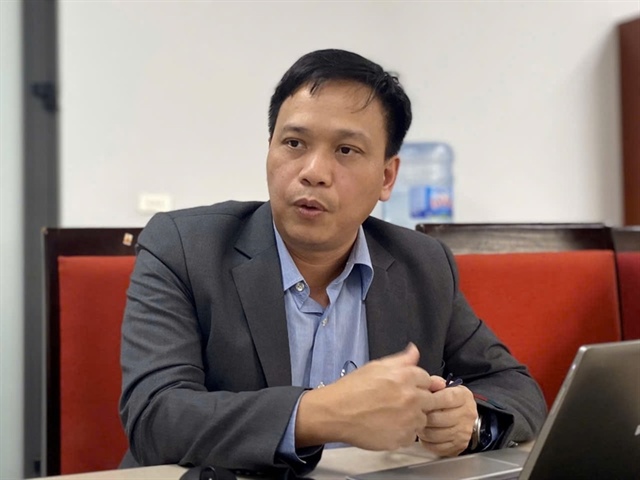
Dr. Nguyen Quoc Viet |
According to the expert, Vietnam currently has 676 SOEs, including 478 with 100% state capital and 198 with state dominant capital. Among them are six economic groups, 53 general corporations, mostly operating in key sectors of the economy.
Moreover, SOEs play a crucial role in leading and dominating vital sectors of the economy to achieve socio-economic objectives, ensure the socialist orientation, stabilize the macroeconomy, and cope with market fluctuations (such as the energy, telecommunications, and finance sectors). They invest in areas where the private sector is unwilling or unable to invest due to high risks or low profits but are essential for socio-economic development. SOEs also provide essential public services, contributing to social security.
However, Dr. Nguyen Quoc Viet candidly acknowledged that there are bottlenecks hindering the effective manifestation of SOEs’ leading role in Vietnam’s socialist-oriented market economy. Overcoming this situation requires a comprehensive, synchronous, and determined reform process, from thinking to action, including resolutely eliminating the subsidy mindset and administrative intervention. It is necessary to clearly define the sectors where SOEs need to hold a dominant role and those where the private sector should participate, and this group of enterprises needs to truly withdraw.
Additionally, SOEs should be decisively granted more autonomy and allowed to take higher risks in making business decisions instead of depending on the state capital representative agency. SOEs also need to consider and apply sustainable development strategies, including prioritizing investment in new technologies and innovation while paying attention to social and environmental factors. Finally, there should be a clear separation between social objectives and pure business efficiency of enterprises.
“The Prime Minister has directed a review and immediate removal of institutional obstacles, especially those related to laws on the management and investment of state capital in enterprises, following the principle of ‘managing only what is known, not managing what is unknown,’ along with enhanced decentralization and empowerment. This will help SOEs address their difficulties and create more space for their robust development,” Dr. Nguyen Quoc Viet expressed his belief.
Sharing the same view, Prof. Dr. Nguyen Thuong Lang suggested quantifying the business responsibilities and contributions to socio-economic tasks of SOEs, depending on the characteristics of each sector and the conditions of each enterprise. We should also research and develop mechanisms for private enterprises, especially large private enterprises, to be more active in performing socio-economic tasks, reducing pressure on SOEs, and creating a fair and equal environment for all business sectors to contribute to the country.
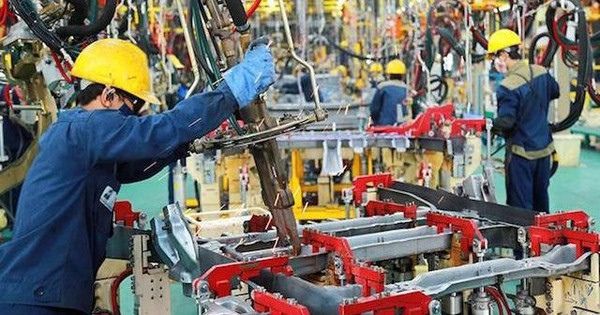
State-owned enterprises need to boldly invest in advanced technologies, especially in areas such as automation – Illustrative image |
Connecting State-owned Enterprises with the Private Sector
One of the requirements raised by Prime Minister Pham Minh Chinh at the working session with SOEs on April 15 was for SOEs to coordinate, learn from, and support each other and the private enterprises more effectively. This is also an issue that both experts are concerned about and have provided insightful suggestions.
According to Dr. Nguyen Quoc Viet, SOEs can learn from the strengths of the Korean Chaebol model in several aspects. First, they should develop sustainable supply chains linked with private enterprises within and outside the industry, especially in sectors with organic and close relationships.
Second, SOEs need to diversify their development strategies based on their competitive advantages, expanding from traditional sectors to new industries. For instance, in the energy sector, they can integrate artificial intelligence (AI), data, renewable energy, and energy logistics for other industries, or in the finance-banking sector, they can develop investment-business consulting and insurance services.
Third, SOEs should identify key investment priorities. They need to boldly invest in advanced technologies, especially in areas such as automation, AI, and green technology, and apply global advanced governance practices to build strong brands and expand internationally, particularly in sectors like energy, technology, and finance.
“Through connections with other economic sectors, SOEs will be encouraged to innovate their management methods, reduce state intervention in their daily operations, and create a more flexible mechanism for accessing capital, resources, and markets. Conversely, innovation in governance will not only enhance the competitiveness of SOEs but also foster coordination between enterprises and other economic sectors,” affirmed Dr. Nguyen Quoc Viet.
For his part, Prof. Dr. Nguyen Thuong Lang strongly supported the view that SOEs must connect with private enterprises and even foreign-invested enterprises (FIEs) based on value chains, profit-sharing, and risk-sharing for sustainable and effective collaboration. However, the foundation of this connection lies in forming and operating various transparent markets, such as real estate, labor, information, and technology markets, without fragmentation and inequality among different types of enterprises. Furthermore, the business environment should be friendly and impartial, reducing the time required for administrative procedures and eliminating intermediaries and informal costs as directed by the Prime Minister.
“After nearly 40 years of Renovation, we have identified the private economic sector as the most critical driving force for the national economy. We also need to restructure SOEs, creating conditions for them to operate according to market economy rules with socialist orientation. By doing so, both the state-owned and private sectors can develop to their full potential and capabilities, harmonizing interests, sharing responsibilities and risks, thereby propelling the economy to a new stage of development,” concluded Prof. Dr. Nguyen Thuong Lang.
Hoang Hanh
– 09:25 05/06/2025
“A Streamlined Powerhouse: Ministry of Agriculture and Environment Merger Results in a Lean 30-Unit Structure”
The Ministry of Agriculture and Environment has undergone a significant restructuring, consolidating and organizing its units. With a total of 53 units previously belonging to two separate ministries – 26 from the Ministry of Environment and 27 from the Ministry of Agriculture and Rural Development – the new ministry has been streamlined into an efficient 30-unit structure.
The Power of Vinamilk: Nurturing 90% of Vietnamese Households.
The CMO of Vinamilk shared that the company’s vision goes beyond being a national brand; it strives to be a brand that serves and empowers the community.
Revolutionizing Retail Management: The Digital Transformation Imperative for Savvy Store Owners
In the evolving world of cashless payments, BVBank introduces DigiStore – an all-in-one digital platform designed to empower F&B merchants with efficient transaction management, streamlined cash flow control, and enhanced customer experiences. With just one app, DigiStore simplifies operations, making every task effortless and swift.


